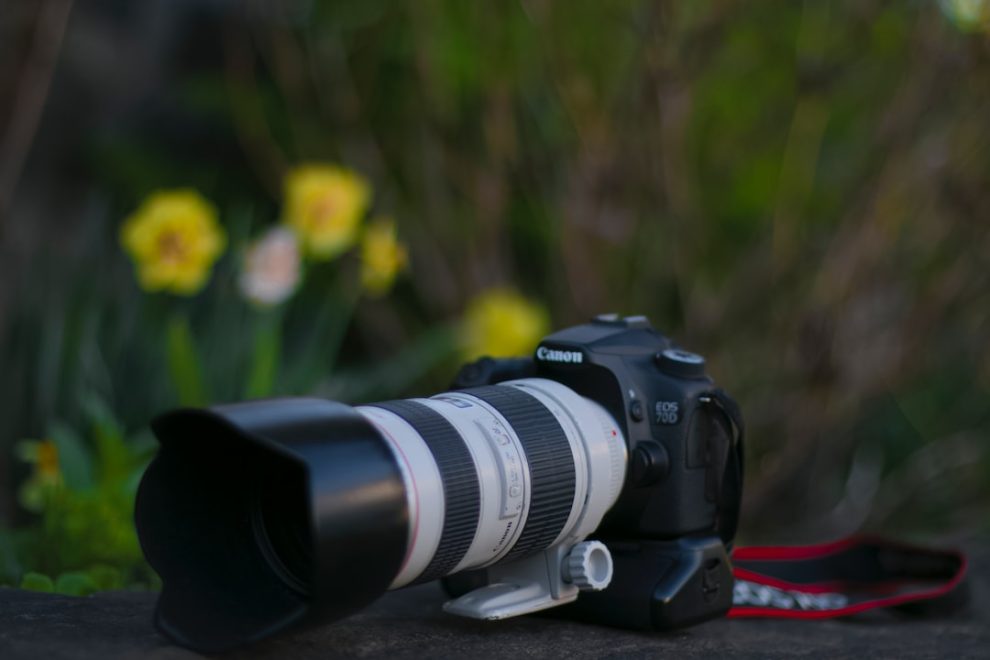Canon is a well-known and respected brand in the world of photography. The company has a long history of producing high-quality cameras that are loved by both professionals and enthusiasts alike. Canon cameras are known for their reliability, durability, and excellent image quality.
Canon was founded in 1937 and has since become one of the leading manufacturers of cameras and other imaging products. The company’s first camera, the Kwanon, was released in 1934 and was the first camera to bear the Canon name. Since then, Canon has continued to innovate and develop new technologies to improve the photography experience.
Canon cameras come with a wide range of features that cater to different photography needs. Some of the key features include high-resolution sensors, fast autofocus systems, wide ISO ranges, and advanced video capabilities. These features allow photographers to capture stunning images in various lighting conditions and shoot high-quality videos.
Understanding the Different Types of Canon Cameras
Canon offers a variety of camera types to suit different photography styles and preferences. The three main types of Canon cameras are DSLR cameras, mirrorless cameras, and point-and-shoot cameras.
DSLR cameras are the most popular type of camera among professional photographers. They feature a mirror mechanism that allows users to see through the lens via an optical viewfinder. DSLRs offer excellent image quality, fast autofocus systems, and a wide range of lens options. They are also known for their durability and versatility.
Mirrorless cameras, on the other hand, do not have a mirror mechanism. Instead, they use an electronic viewfinder or LCD screen to display the image preview. Mirrorless cameras are smaller and lighter than DSLRs, making them more portable and easier to carry around. They also offer fast autofocus systems and excellent image quality.
Point-and-shoot cameras are compact cameras that are designed for casual photographers who want a simple and easy-to-use camera. These cameras are small, lightweight, and often have fixed lenses. Point-and-shoot cameras are great for everyday photography and capturing quick snapshots.
Choosing the Right Canon Camera for Your Needs
When choosing a Canon camera, it is important to assess your photography needs and consider your budget. Think about the type of photography you will be doing and the features that are most important to you.
If you are a professional photographer or someone who is serious about photography, a DSLR camera may be the best choice for you. DSLRs offer advanced features, excellent image quality, and a wide range of lens options. However, they can be quite expensive, so budget considerations are important.
If you are a casual photographer or someone who wants a more compact and portable camera, a mirrorless camera may be a better option. Mirrorless cameras offer similar image quality and features to DSLRs but in a smaller and lighter package. They are also more affordable than DSLRs.
For those who just want a simple and easy-to-use camera for everyday photography, a point-and-shoot camera may be the best choice. Point-and-shoot cameras are affordable, compact, and perfect for capturing quick snapshots.
Researching Canon camera models is also important when choosing the right camera for your needs. Look for reviews, compare specifications, and read user experiences to get an idea of which camera model will suit you best.
Factors to Consider When Selecting a Canon Camera
When selecting a Canon camera, there are several factors to consider that will affect the image quality and performance of the camera.
One important factor is the sensor size and resolution. The sensor size determines how much light the camera can capture, which affects image quality and low-light performance. A larger sensor size generally produces better image quality. Resolution refers to the number of pixels on the sensor, which affects the level of detail in the image.
Another important factor is the autofocus system. A fast and accurate autofocus system is crucial for capturing sharp and in-focus images. Canon cameras are known for their excellent autofocus systems, but it is still important to consider the specific autofocus capabilities of the camera you are interested in.
ISO range is another factor to consider. ISO determines the camera’s sensitivity to light. A wider ISO range allows for better low-light performance and the ability to capture images in challenging lighting conditions.
Video capabilities are also important if you plan on shooting videos with your Canon camera. Look for cameras that offer high-resolution video recording, manual controls, and features like image stabilization.
Exploring Canon Camera Lenses and Accessories
Canon offers a wide range of lenses that are compatible with their cameras. Different lenses have different focal lengths and purposes, so it is important to choose the right lens for your needs.
Canon lenses can be categorized into several types, including prime lenses, zoom lenses, and specialty lenses. Prime lenses have a fixed focal length and are known for their excellent image quality. Zoom lenses have a variable focal length and allow you to zoom in and out on your subject. Specialty lenses include macro lenses for close-up photography, telephoto lenses for capturing distant subjects, and wide-angle lenses for capturing expansive landscapes.
In addition to lenses, there are also other accessories that can enhance your photography experience with a Canon camera. Some popular accessories include external flashes for better lighting, tripods for stability, filters for creative effects, and camera bags for protection and portability.
Tips for Capturing the Perfect Shot with Canon Cameras

Capturing the perfect shot requires more than just having a good camera. It also involves understanding composition techniques, using proper lighting, and adjusting settings like shutter speed and aperture.
Composition techniques help create visually appealing images. Some common techniques include the rule of thirds, leading lines, and framing. The rule of thirds involves dividing the frame into thirds both horizontally and vertically and placing the subject along these lines or at their intersections. Leading lines are lines in the image that lead the viewer’s eye towards the subject. Framing involves using elements in the scene to frame the subject and draw attention to it.
Lighting is another important aspect of photography. Good lighting can make or break a photo. Natural light is often preferred, but if shooting indoors or in low-light conditions, artificial lighting may be necessary. Understanding how to use and manipulate light can greatly improve your photos.
Shutter speed and aperture settings also play a role in capturing the perfect shot. Shutter speed determines how long the camera’s sensor is exposed to light, while aperture controls the amount of light that enters the camera. Adjusting these settings can help freeze motion, create a shallow depth of field, or capture long exposures.
Understanding Canon Camera Settings and Modes
Canon cameras come with various shooting modes and settings that allow you to customize your photography experience.
Camera modes include automatic modes, semi-automatic modes, and manual mode. Automatic modes, such as Program mode and Auto mode, allow the camera to make all the exposure decisions for you. Semi-automatic modes, such as Aperture Priority mode and Shutter Priority mode, allow you to control one aspect of exposure while the camera controls the rest. Manual mode gives you full control over all exposure settings.
Customizing camera settings allows you to tailor the camera to your specific needs and preferences. You can adjust settings such as white balance, metering mode, autofocus mode, and image quality. Understanding these settings and how they affect your photos can help you achieve the desired results.
Shooting in manual mode gives you complete control over all aspects of exposure. This allows for more creative freedom but also requires a good understanding of exposure principles. Manual mode is often preferred by professional photographers who want full control over their images.
Editing and Enhancing Your Photos with Canon Software
Canon offers a range of software options for editing and enhancing your photos. These software programs allow you to adjust settings such as exposure, white balance, and color, as well as apply creative effects and filters.
Canon’s Digital Photo Professional (DPP) is a free software program that is included with Canon cameras. It offers basic editing features such as cropping, straightening, and adjusting exposure. DPP also allows you to process RAW files, which contain more image data and offer greater flexibility in post-processing.
For more advanced editing features, Canon also offers software programs like Adobe Photoshop and Lightroom. These programs allow for more precise adjustments and offer a wide range of tools and filters to enhance your photos.
Editing your photos can help bring out the best in your images and allow you to express your creativity. It is important to remember that editing should be used to enhance your photos, not to fix mistakes or compensate for poor photography techniques.
Maintaining and Caring for Your Canon Camera
Proper maintenance and care are essential for keeping your Canon camera in good working condition and prolonging its lifespan.
Cleaning your camera regularly is important to remove dust, dirt, and smudges from the lens, sensor, and other parts of the camera. Use a soft brush or blower to remove loose particles, and a microfiber cloth or lens cleaning solution to clean the lens and sensor. Be careful not to scratch the lens or sensor when cleaning.
Protecting your camera from damage is also important. Use a camera bag or case to protect your camera when not in use or when traveling. Avoid exposing your camera to extreme temperatures or humidity, as this can damage the internal components.
If you encounter any issues with your Canon camera, it is important to troubleshoot the problem before seeking professional help. Check the battery level, memory card, and settings to ensure everything is functioning properly. If the issue persists, consult the camera’s manual or contact Canon customer support for assistance.
Capturing Life’s Moments with Canon Cameras
Canon cameras offer a wide range of features and options that cater to different photography needs. Whether you are a professional photographer or a casual enthusiast, there is a Canon camera that will suit your needs and help you capture life’s moments.
From DSLRs to mirrorless cameras and point-and-shoot cameras, Canon offers a variety of options to choose from. Consider your photography needs, budget, and research different camera models to find the right one for you.
Factors such as sensor size and resolution, autofocus system, ISO range, and video capabilities should also be considered when selecting a Canon camera. These factors will affect the image quality and performance of the camera.
Canon lenses and accessories can further enhance your photography experience. Choose the right lens for your needs and consider other accessories such as flashes, tripods, and filters to enhance your photos.
Understanding composition techniques, lighting tips, and camera settings can help you capture the perfect shot with your Canon camera. Experiment with different techniques and settings to find your own unique style.
Editing your photos with Canon software can further enhance your images and allow you to express your creativity. Take advantage of the editing features available to bring out the best in your photos.
Proper maintenance and care are important for keeping your Canon camera in good working condition. Clean your camera regularly, protect it from damage, and troubleshoot any issues that may arise.
In conclusion, Canon cameras offer a wide range of features and options that allow photographers to capture life’s moments with stunning clarity and detail. Whether you are a professional or an enthusiast, there is a Canon camera that will suit your needs and help you create beautiful images. So grab your Canon camera and start capturing life’s moments today!
















Add Comment